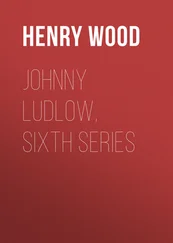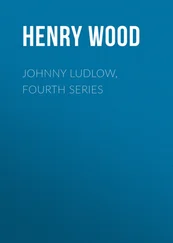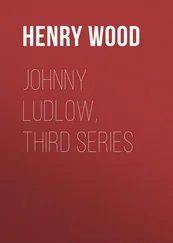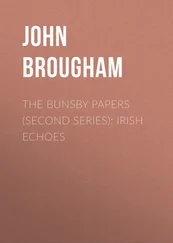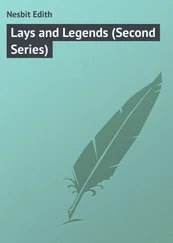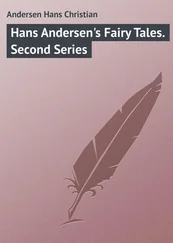Henry Wood - Johnny Ludlow, Second Series
Здесь есть возможность читать онлайн «Henry Wood - Johnny Ludlow, Second Series» — ознакомительный отрывок электронной книги совершенно бесплатно, а после прочтения отрывка купить полную версию. В некоторых случаях можно слушать аудио, скачать через торрент в формате fb2 и присутствует краткое содержание. Жанр: foreign_prose, literature_19, foreign_antique, на английском языке. Описание произведения, (предисловие) а так же отзывы посетителей доступны на портале библиотеки ЛибКат.
- Название:Johnny Ludlow, Second Series
- Автор:
- Жанр:
- Год:неизвестен
- ISBN:нет данных
- Рейтинг книги:3 / 5. Голосов: 1
-
Избранное:Добавить в избранное
- Отзывы:
-
Ваша оценка:
- 60
- 1
- 2
- 3
- 4
- 5
Johnny Ludlow, Second Series: краткое содержание, описание и аннотация
Предлагаем к чтению аннотацию, описание, краткое содержание или предисловие (зависит от того, что написал сам автор книги «Johnny Ludlow, Second Series»). Если вы не нашли необходимую информацию о книге — напишите в комментариях, мы постараемся отыскать её.
Johnny Ludlow, Second Series — читать онлайн ознакомительный отрывок
Ниже представлен текст книги, разбитый по страницам. Система сохранения места последней прочитанной страницы, позволяет с удобством читать онлайн бесплатно книгу «Johnny Ludlow, Second Series», без необходимости каждый раз заново искать на чём Вы остановились. Поставьте закладку, и сможете в любой момент перейти на страницу, на которой закончили чтение.
Интервал:
Закладка:
Mrs. Henry Wood
Johnny Ludlow, Second Series
I.
LOST IN THE POST
Many a true tale has been told of the disappearance of money in passing through the post. Sometimes the loss is never cleared up, but remains a mystery to the end. One of these losses happened to us, and the circumstances were so curious that they would have puzzled a bench of judges. It was a regular mystery, and could not be accounted for in any way.
If you chanced to read the first series of these papers, it may scarcely be necessary to recall certain points to your recollection—that Mr. Todhetley, commonly called the Squire, had two estates. The chief one, Dyke Manor, lay on the borders of Worcestershire and Warwickshire, partly in both counties; the other, Crabb Cot, was a smaller place altogether, and much nearer Worcester. Sometimes we stayed at one place, sometimes at the other. By an arrangement with Mr. Brandon, my guardian and the trustee to my property, I, Johnny Ludlow, lived with the Todhetleys. Mrs. Todhetley, the Squire’s present wife, was my stepmother, my father having married her after my own mother’s death. After my father’s death—which took place speedily—she became the second wife of Squire Todhetley, and the stepmother of his only son and heir, Joseph. Two children were subsequently born to them, Hugh and Lena, to whom Joseph was of course half-brother. Joseph, unlike myself, had been old enough to resent the advent of a stepmother when she came. Indulged and haughty, he did not like the gentle control she brought; though she was good as gold, as loving to him as he would let her be, and kind to everybody. I don’t say but that she was tall and thin as a lamp-post, with a mild face, given to having aches in it, scanty light hair, and kindly blue eyes; so she had not much to boast of in the way of appearance. Joe and I grew up together like brothers. He was several years the elder, and domineered over me absolutely. At school he was always called “Tod;” and I fell into the same habit. Perhaps that is sufficient explanation.
“And if you don’t come back to-night, you had better send me a five-pound note in a letter,” said Mrs. Todhetley.
“All right,” replied the Squire.
This was said on the platform of Timberdale Station. We were staying at Crabb Cot, and were taking the train at Timberdale instead of that at South Crabb. The Squire was going to Worcester, and was taking Tod and myself with him. It was a fine morning in April, and Mrs. Todhetley and little Hugh had come with us through the Ravine for the sake of the walk. Our returning at night, or not, was left an open question, contingent upon the Squire’s business at Worcester being over.
“Bring me a whip, and a new bird-cage for my thrush, and a pot of marmalade, papa,” called out Hugh.
“What else would you like, sir?” retorted the Squire.
“You bring ’em, Joe.”
“I dare say!” said Tod.
The train puffed off, drowning Hugh’s further commands. We saw him throw his cap at the train, and Mrs. Todhetley holding him back from running after it.
“That young gentleman wants to be sent to school,” remarked the Squire. “I’m afraid you two boys make him worse than he would be.”
We reached Worcester about twelve, and went to the Star and Garter. The Squire had no end of matters on hand that day: but the two chief things that had brought him to Worcester were—to draw some money from the bank, and to negotiate with Mr. Prothero, a corn-dealer, for the sale of a load of wheat. Mr. Prothero was a close man to deal with: he wanted the wheat at one price, the Squire said it should only go at another: if he held out, the Squire meant to hold out, even though it involved staying the night in Worcester.
It was Wednesday; market-day. Not so large a market as the Saturday’s, but the town looked pretty full. The first thing the Squire did was to go to the Old Bank. At the door he turned round and said there was no need for three of us to crowd into the place. However, we were then inside, and so went on with him.
He had something particular to say to Mr. Isaac, and asked for him. They were talking together in private for a minute or two, and then the Squire took out his cheque for fifty pounds, and laid it on the counter.
“How will you take it?” asked Mr. Isaac.
“In five-pound notes.”
Mr. Isaac brought the money himself. The Squire put it in his pocket-book, and we said good-morning, and departed. There were shops to call at and people to see: and of course the market to walk through. You wouldn’t get the Squire to keep himself out of the market-house, when in Worcester on market-day: he’d go about asking the price of butter and fowls like any old woman. A little after four o’clock we got back to the Star; and found Mr. Prothero had not made his appearance.
“Just like him!” cried the Squire. “His appointment was for four o’clock sharp. He means to hold out against my price; that’s what he thinks to do. Let him! he won’t get the wheat at less.”
“I’d see him a jolly long way before he should have it at all,” said haughty Tod. “Do you hear, sir?”
“Hold your tongue, Joe,” was the Squire’s answer.
“Anyway, sir, Prothero gives you more trouble than all the rest of the buyers put together. He’s a stingy, close-fisted fellow.”
“But his money’s safe and sure. Prothero is a respectable man, Joe; his word’s as good as his bond.”
Half-past four, and no Prothero. The Squire began to fume a little: if he hated one thing more than another it was to be kept waiting.
“Look here, boys, I’ll send that note to your mother,” he said, taking out his pocket-book. “There’s not much chance of our going home to-night at this rate. Ring, one of you, for some paper and envelopes.”
Separating one of the notes from the roll Mr. Isaac had handed to him, he gave it to me to put up. I asked him if I should take down the number.
“I don’t think it matters, Johnny.”
But I took it down, perhaps through some unconscious instinct—for I don’t suppose I am more cautious than other people. In my pocket was a letter from Anna Whitney: and I pencilled on it the number of the note.
“Write inside the envelope ‘Not home till to-morrow,’” growled the Squire, forgetting that it could not be there till the morning. But he was in an ill-humour.
I wrote it at his bidding, enclosed the bank-note, and addressed the letter to Mrs. Todhetley at Crabb Cot. Tod and I went out to post it, and began laying plans as to how we should spend the evening at Worcester.
The post-office is not far from the Star, as everybody knows: and though we met a fellow who used to go to school with us, a doctor’s son, and stayed talking with him, not ten minutes elapsed before we were back again. And behold in that short time there was a change in the programme. Old Prothero had been in, the bargain about the wheat was concluded, and the Squire intended to start for home as soon as dinner was over. Tod resented the change.
“Johnny and I were going to that advertised séance —or whatever they call the thing—on electro-biology, sir. It will be first-rate fun, they say.”
“Very sorry for you and Johnny. You’ll have to go home instead. Prothero has bought the wheat: and that’s all I should have had to stay here for.”
“At his own price!” cried Tod, rather mockingly.
“No, Mr. Joe; at mine.”
“Well, it’s an awful sell for us,” grumbled Tod. “It’s not so often we get a night at Worcester, that we should be done out of this chance.”
“The fact is, I don’t feel well,” said the Squire, “and should most likely have gone home, whether Prothero had come in or not. I’m afraid I have caught cold, Joe.”
Читать дальшеИнтервал:
Закладка:
Похожие книги на «Johnny Ludlow, Second Series»
Представляем Вашему вниманию похожие книги на «Johnny Ludlow, Second Series» списком для выбора. Мы отобрали схожую по названию и смыслу литературу в надежде предоставить читателям больше вариантов отыскать новые, интересные, ещё непрочитанные произведения.
Обсуждение, отзывы о книге «Johnny Ludlow, Second Series» и просто собственные мнения читателей. Оставьте ваши комментарии, напишите, что Вы думаете о произведении, его смысле или главных героях. Укажите что конкретно понравилось, а что нет, и почему Вы так считаете.


